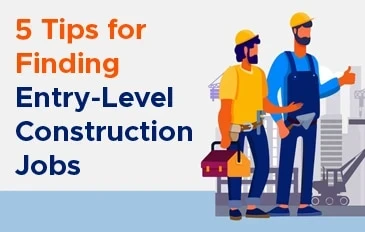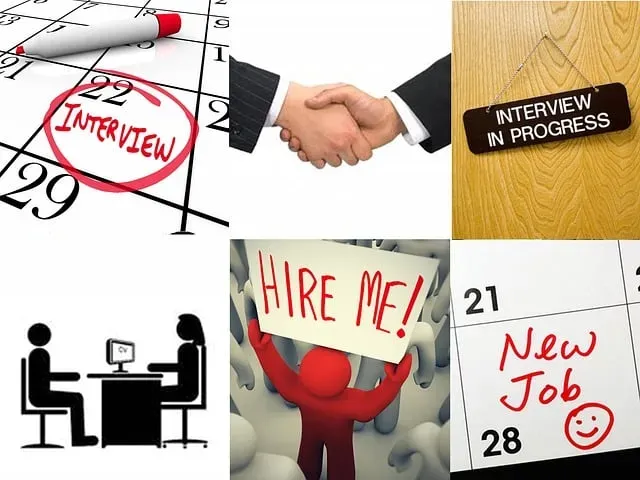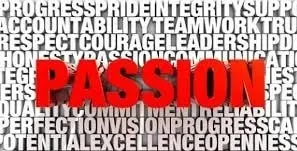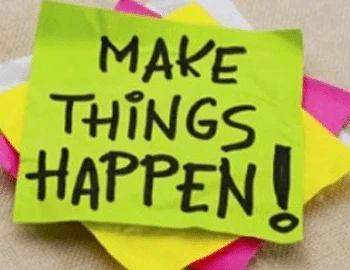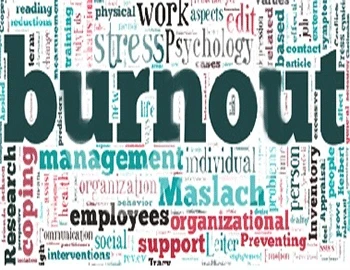Michael DeSafey | Executive Recruiter and HR Professional
Engineering Resumes: Showcasing Problem-Solving Through Case Study Narratives
In today’s competitive engineering job market, a engineering resumes that simply lists responsibilities and technical skills isn’t enough. Hiring managers are increasingly looking for evidence of real-world problem-solving ability and innovation—qualities best demonstrated through detailed, narrative-driven case studies. By adopting a case study format within your engineering resumes, you can narrate real-world challenges, solutions, and quantifiable successes that effectively illustrate your analytical and creative problem-solving abilities.
This comprehensive guide will explore how engineers can reimagine their engineering resumes by incorporating case study narratives. We’ll cover why case studies work, the best practices for creating them, and the steps you can take to integrate these narratives seamlessly into your resume. Additionally, we’ll provide valuable SEO-optimized tips, relevant links, and practical examples to help you craft engineering resumes that truly stands out.
Why Case Study Narratives are Essential in Engineering Resumes
Demonstrating Real-World Impact
Engineering projects are complex, often involving multiple stages of problem-solving, innovation, and critical decision-making. While traditional bullet points may list your responsibilities, they rarely capture the depth of your impact. Case study narratives allow you to tell the story of a project—from the initial challenge to the ultimate solution—highlighting your personal contribution and the measurable results achieved. This narrative format:
• Illustrates Problem-Solving: It shows how you approached complex challenges and the creative strategies you employed.
• Quantifies Success: By including specific data (e.g., cost savings, time reductions, efficiency gains), you can provide concrete evidence of your contributions.
• Engages Hiring Managers: A well-crafted narrative is more engaging than a simple list of tasks, making your resume memorable.
Enhancing Analytical and Creative Credibility
Case studies enable you to showcase both analytical and creative thinking. Engineering is not solely about calculations and technical know-how—it’s also about innovative solutions that drive progress. A case study narrative allows you to articulate the context of a challenge, describe the analytical process you followed, and demonstrate how creative insights led to breakthroughs. This dual focus on data-driven analysis and creative problem-solving sets you apart as a well-rounded professional.
Aligning with Modern Recruitment Trends
Recruiters today are not just scanning engineering resumes for keywords; they’re looking for stories that show how you’ve overcome real-world challenges. By integrating case studies into your resume, you align with modern recruitment trends that favor narrative-driven, impact-focused content. This approach not only improves your chances with Applicant Tracking Systems (ATS) that recognize measurable achievements but also resonates with human recruiters who want to see the person behind the technical skills.
How to Structure a Case Study Narrative on Your Engineering Resumes
When reimagining your engineering resume with case study narratives, a structured approach is key. Here’s a step-by-step guide on how to craft and incorporate these narratives effectively.
1. Identify Key Projects and Challenges
Start by selecting projects that had significant challenges and notable outcomes. Choose examples where your intervention led to measurable improvements. Ask yourself:
• Which projects required complex problem-solving?
• Where did you play a critical role in turning challenges into successes?
• What quantitative results did you achieve (e.g., cost savings, improved efficiency, reduced downtime)?
Example:
Consider a project where you led the redesign of a manufacturing process that resulted in a 15% reduction in production costs.
2. Use the STAR Method to Craft Your Narrative
The STAR method (Situation, Task, Action, Result) is an excellent framework for structuring case study narratives:
• Situation: Provide context by briefly describing the project and the specific challenge.
• Task: Explain your role and the objectives you were tasked with achieving.
• Action: Detail the steps you took, the strategies you implemented, and the technical or creative solutions you devised.
• Result: Conclude with the outcomes—quantify your success with specific metrics and explain the impact of your actions.
Example:
• Situation: A major production line was experiencing a 20% increase in downtime due to outdated machinery and inefficient processes.
• Task: I was tasked with identifying bottlenecks and implementing process improvements to reduce downtime and increase production efficiency.
• Action: I led a cross-functional team to conduct a comprehensive process audit, introduced predictive maintenance technologies, and redesigned workflow layouts.
• Result: These changes resulted in a 25% reduction in downtime, saving the company over $500,000 annually and significantly boosting overall productivity.
3. Integrate Visual Elements for Enhanced Clarity
Where possible, incorporate visual elements such as charts, timelines, or graphs that summarize the key data points from your case study. Visuals can enhance understanding and quickly convey complex information to recruiters. Tools like Canva and Piktochart offer user-friendly platforms to create these visuals.
4. Embed Case Studies Within Your Engineering Resumes Sections
You don’t necessarily need a separate “Case Study” section. Instead, embed these narratives within your work experience entries. Under each relevant role, include one or two bullet points that are formatted as mini case studies. This approach ensures that your resume remains streamlined while highlighting your problem-solving skills through concrete examples.
Example Entry:
Senior Process Engineer | ABC Manufacturing
• Revamped Production Process: Spearheaded a project to redesign the production workflow, which reduced downtime by 25% and saved $500K annually. Led a cross-functional team through a comprehensive audit, integrating predictive maintenance and process re-engineering.
• Enhanced Quality Control: Developed a robust quality control framework that reduced product defects by 18%, leveraging data analytics and real-time monitoring systems to ensure continuous improvement.
5. Emphasize Keywords and Metrics for SEO
When writing your case study narratives, integrate industry-specific keywords that align with the job descriptions you’re targeting. Keywords such as “engineering problem-solving,” “process improvement,” “predictive maintenance,” and “cost reduction” should appear naturally within your narratives. Additionally, use quantifiable metrics to provide concrete evidence of your achievements. This not only improves SEO for your online resume or LinkedIn profile but also makes your accomplishments stand out.
6. Tailor Case Studies for Specific Roles
Customize your case studies based on the requirements of the role you’re applying for. If the position emphasizes lean manufacturing, focus on case studies that highlight process optimization and waste reduction. If the role is more research-oriented, select projects that showcase your analytical skills and innovative research methods.
Best Practices for Crafting Your Case Study Narratives
1. Keep it Concise
While the goal is to provide a detailed narrative, remember that recruiters typically spend only a few seconds scanning each resume. Aim for clear, concise bullet points that encapsulate the essence of your case study without overwhelming the reader with too much detail. Use clear language and bullet formatting to enhance readability.
2. Balance Technical Detail with Readability
Engineers often have a wealth of technical details at their disposal. However, it’s important to strike a balance between technical specificity and clarity. Avoid overly complex jargon that might alienate non-specialist recruiters, but include enough detail to showcase your technical acumen.
3. Maintain a Professional Tone
Your case study narratives should be professional and focused on measurable outcomes. Avoid personal anecdotes that stray from the topic of engineering achievements. Instead, concentrate on the problem, your solution, and the resulting impact.
4. Use Active Voice
Writing in an active voice makes your narratives more engaging and direct. Instead of writing “The process was improved by 20%,” write “I improved the process by 20%.” Active voice emphasizes your role and contributions.
5. Regularly Update Your Engineering Resumes
As you complete new projects and achieve new milestones, update your resume with fresh case study narratives. This not only keeps your resume current but also reflects your continuous growth and adaptability in the engineering field.
Tools and Resources to Help You Create Case Study Narratives
Canva: Canva offers a variety of templates and design tools that can help you create visuals to complement your case study narratives. Whether you need charts, timelines, or data visuals, Canva is a versatile tool for enhancing your resume’s visual appeal.
Piktochart: Piktochart is another excellent tool for creating detailed infographics and visual summaries of your achievements. It’s particularly useful for engineers looking to present complex data in an accessible format.
LinkedIn Learning: LinkedIn Learning provides courses on resume writing, data visualization, and effective storytelling. These courses can help you refine your case study narratives and ensure that your resume is both compelling and professional.
Real-World Examples of Case Study Narratives on Engineering Resumes
Example 1: Process Improvement in Manufacturing
- Situation: At XYZ Manufacturing, the production line was facing frequent downtime due to outdated equipment and inefficient maintenance procedures.
- Task: I was tasked with reducing downtime and improving overall production efficiency without exceeding budget constraints.
- Action: I led a cross-functional team to conduct a comprehensive audit of the production process. We implemented predictive maintenance strategies and re-engineered the workflow to optimize resource allocation.
- Result: These initiatives resulted in a 25% reduction in downtime and a $500,000 annual cost saving, significantly boosting the company’s profitability and operational efficiency.
Bullet Point for Resume:
• Revamped production process: Led a team to implement predictive maintenance and workflow re-engineering, reducing downtime by 25% and saving $500K annually.
Example 2: Quality Control Enhancement
- Situation: A leading engineering firm was experiencing a high rate of product defects, impacting client satisfaction and incurring rework costs.
- Task: I was assigned to develop and implement a quality control system that would reduce defect rates and improve product reliability.
- Action: I introduced advanced data analytics and real-time monitoring systems to track quality metrics. I also coordinated training sessions for the production team to ensure adherence to new quality standards.
- Result: The initiative led to an 18% reduction in product defects, enhanced client satisfaction, and a significant decrease in rework costs.
Bullet Point for Engineering Resumes:
• Enhanced quality control: Implemented data analytics and real-time monitoring systems to reduce product defects by 18%, increasing client satisfaction and lowering rework costs.
Example 3: Sustainable Engineering Initiative
- Situation: During a project to upgrade an existing facility, environmental regulations required a major overhaul of the waste management system.
- Task: I was responsible for redesigning the system to comply with new EPA standards while reducing operational costs.
- Action: I collaborated with environmental consultants and cross-disciplinary teams to develop an innovative waste management solution that integrated recycling and efficient waste disposal practices.
- Result: The redesigned system not only met regulatory requirements but also reduced waste disposal costs by 15% and contributed to the company’s sustainability goals.
Bullet Point for Resume:
• Spearheaded sustainable engineering: Redesigned waste management systems in collaboration with environmental consultants, reducing disposal costs by 15% and achieving full EPA compliance.
How to Optimize Your Resume with Case Study Narratives for SEO
1. Incorporate Relevant Keywords
Ensure that your case study narratives contain keywords that hiring managers and ATS systems look for. Use terms like “engineering problem-solving,” “process improvement,” “predictive maintenance,” “quality control enhancement,” and “sustainable engineering.” These keywords should be naturally integrated into your narratives to improve search engine visibility.
2. Link to Relevant Online Resources
Embedding links to reputable sources can further boost the SEO value of your online resume or personal blog. For example, linking to Canva’s infographic resources, Piktochart, or LinkedIn Learning courses adds authority and context to your achievements.
3. Use Clear, Descriptive Headings
Divide your resume and supporting online content with clear headings that include keywords. For instance, sections like “Process Improvement Case Study” or “Quality Control Enhancement Example” help search engines understand your content while guiding recruiters through your achievements.
Conclusion
Reimagining your engineering resumes by incorporating case study narratives is a powerful way to showcase your real-world problem-solving abilities. By structuring your achievements using the STAR method and integrating clear, quantifiable results into your narrative, you can create a compelling story that highlights both your analytical rigor and creative problem-solving skills.
Visual aids and clear, concise bullet points further enhance the readability and impact of engineering resumes, making it easier for hiring managers to understand your contributions. With the integration of case studies, you not only provide evidence of your technical skills but also demonstrate your ability to navigate complex challenges, innovate, and drive measurable outcomes.
By adopting these strategies, your resume will not only pass through ATS filters but also resonate with human recruiters who value detailed, impact-driven narratives. Embrace the power of case study storytelling in your resume, and transform how you present your engineering achievements—making your next career opportunity more attainable.
Webuild Resumes is a leading resume writing services firm dedicated to the construction, engineering and environmental industries. To learn more about resume writing and professional branding services, please visit: www.webuildresumes.com
Using Infographics to Enhance Your Construction Resume
In today’s competitive job market, especially within the construction industry, a traditional text-based resume may not always capture the full extent of your expertise. With complex projects, technical details, and a host of quantifiable achievements, construction professionals are discovering the power of visual storytelling. By incorporating infographics into your resume, you can not only display your accomplishments in a more engaging manner but also differentiate yourself from the competition.
In this comprehensive guide, we’ll explore how to leverage visual storytelling and infographics to enhance your construction resume. We’ll discuss why visuals matter, the best practices for integrating them into your resume, and the tools you can use to create stunning visuals that capture the essence of your work. Whether you’re a seasoned project manager or a field engineer, these tips will help you craft a resume that stands out.
Why Visual Storytelling Matters in the Construction Industry
Construction projects involve multifaceted details—from budget allocations and project timelines to safety statistics and regulatory compliance figures. Visual storytelling through infographics can condense this complexity into digestible, engaging visuals. Instead of sifting through dense paragraphs, hiring managers can quickly grasp your achievements at a glance.
First impressions are critical. A resume that uses infographics effectively signals that you’re not only detail-oriented but also innovative and capable of communicating complex data in an accessible format. This can be particularly appealing in an industry where clarity and precision are essential.
In the construction field, many professionals have similar qualifications. What can set you apart is the ability to present your work in a dynamic way. A resume enhanced with visuals immediately differentiates you from candidates who rely solely on traditional formats.
Understanding the Role of Infographics in Your Resume
What Are Infographics?
Infographics are graphic visual representations of information, data, or knowledge intended to present information quickly and clearly. They combine data, text, and visuals to tell a story. In the context of a construction resume, infographics can highlight:
• Project timelines and milestones
• Cost savings and budget management figures
• Safety statistics and compliance achievements
• Technical competencies and certifications
The Psychology Behind Visual Learning
Research shows that the human brain processes visual information much faster than text. By integrating infographics into your resume, you’re not only capturing attention but also making it easier for potential employers to remember your key accomplishments. For example, a pie chart illustrating a 25% reduction in material waste or a timeline graphic showcasing the on-time delivery of a multi-million-dollar project can leave a lasting impression.
Industry-Relevant Examples
Imagine a section of your resume dedicated to a large-scale construction project. Instead of listing bullet points like “Managed a $10 million project” and “Achieved a 30% reduction in costs,” you could include a timeline infographic. This visual could highlight each phase of the project—from design and planning through to execution and completion—accompanied by relevant metrics and images. This approach not only saves space but also provides a clear narrative of your project management capabilities.
Integrating Infographics into Your Construction Resume
1. Determine What to Visualize
The first step is to decide which parts of your resume will benefit most from an infographic. Consider including visuals for:
• Project Timelines: Show the phases of a project with start and end dates, key milestones, and outcomes.
• Budget and Cost Savings: Use bar graphs or pie charts to depict cost management success.
• Safety and Compliance: Include icons or charts that reflect your adherence to OSHA standards or your role in reducing workplace incidents.
• Technical Skills and Certifications: Create a visual skills matrix or timeline that shows the progression of your technical expertise.
2. Choose a Format That Complements Your Content
There are several ways to incorporate infographics into your resume. You can opt for:
• Sidebar Infographics: Place a vertical infographic along the side of your resume to highlight key metrics.
• Embedded Graphics: Insert smaller charts or icons next to relevant bullet points.
• Separate Portfolio Section: Include a dedicated “Visual Achievements” section that directs hiring managers to your online portfolio with larger, interactive infographics.
3. Maintain a Professional Design
While creativity is important, it’s crucial to maintain a professional tone. Use clean lines, simple color schemes, and easily readable fonts. Ensure that the infographic’s style matches the overall design of your resume. Avoid clutter—each visual element should serve a purpose and contribute to the narrative of your achievements.
4. Incorporate Relevant Keywords and Data
Search engine optimization isn’t just for web pages. Many companies use Applicant Tracking Systems (ATS) to scan resumes for keywords. Ensure that your infographic includes relevant keywords such as “project management,” “cost reduction,” “safety compliance,” and “construction innovation.” These terms should also be supported by data, so include metrics and figures wherever possible.
For example, an infographic that details a successful project might include:
• A timeline showing project duration (e.g., “Completed a $10M project in 14 months”).
• A pie chart indicating budget savings (e.g., “Achieved a 20% reduction in project costs”).
• Icons representing certifications (e.g., OSHA 30, LEED Accredited Professional).
5. Link to an Online Portfolio
If your resume design allows, consider including a QR code or a hyperlink that directs potential employers to your online portfolio. This is especially useful if your portfolio contains more extensive infographics or project case studies.
Check out platforms like Canva for designing compelling infographics or Piktochart for creating detailed visual reports. These tools can help you produce professional visuals without the need for advanced graphic design skills.
Tools and Resources for Creating Infographics
Canva: Canva is a popular, user-friendly design tool that offers numerous templates for creating infographics. With its drag-and-drop interface, even those without a background in design can create professional-quality visuals. Use Canva to design timelines, charts, and visual skill matrices that complement your resume.
Piktochart: Piktochart is another excellent resource for creating infographics. It allows you to turn complex data into visually appealing graphics. This tool is ideal for highlighting project performance metrics and sustainability achievements in your construction career.
Venngage: Venngage offers customizable templates specifically geared toward infographics. Its range of professional templates makes it easy to create visuals that communicate your achievements effectively. Whether you’re highlighting cost savings or project timelines, Venngage can help you design a graphic that stands out.
Best Practices for Using Infographics in Your Resume
Consistency Is Key
Ensure that your infographic style is consistent throughout your resume. Use the same color palette, font choices, and icon styles to create a unified look. Consistency helps in reinforcing your personal brand and making your resume easier to navigate.
Keep It Simple
While infographics can be highly engaging, it’s important not to overwhelm your resume with too much visual information. Select one or two key metrics or achievements to illustrate visually. The rest of your resume can use traditional text. This balance ensures that your resume remains professional and easy to read.
Test for Print and Digital Formats
Your resume may be viewed on different devices and printed out. Test your infographic’s readability on both screens and paper. Ensure that the graphics remain clear and legible in various formats. Adjust contrast and resolution settings as needed to optimize the design.
Get Feedback
Before finalizing your resume, seek feedback from colleagues or mentors within the construction industry. They can provide insights into whether your infographic effectively communicates your achievements and if the overall design aligns with industry standards. Constructive feedback can help you refine your visuals for maximum impact.
Avoid Overuse of Jargon
While it’s important to include industry-specific keywords, be mindful not to overload your infographic with technical jargon that may confuse the reader. Strike a balance between technical precision and clarity. Remember, the goal is to make your achievements accessible to both technical and non-technical hiring managers.
Case Study: Transforming a Construction Resume with Infographics
Consider the example of John, a seasoned construction project manager. John had extensive experience managing large-scale projects, but his traditional text-based resume was not capturing the full extent of his contributions. He decided to incorporate infographics to showcase his achievements.
Step 1: Identifying Key Metrics
John focused on three primary metrics:
• Project Timelines: He used a timeline infographic to illustrate how he managed to deliver projects ahead of schedule.
• Cost Savings: A bar chart highlighted the percentage of budget saved across multiple projects.
• Safety Record: Icons and percentages were used to depict his role in achieving a zero-incident safety record on site.
Step 2: Creating the Infographics
Using Canva, John created a set of visuals that he embedded within his resume. The timeline was designed with a clear visual flow, and the cost-saving chart used bold colors to draw attention to his achievements. For his safety record, he incorporated industry-standard icons to symbolize safety and compliance.
Step 3: Integrating with the Resume
John strategically placed the infographics in a dedicated “Visual Achievements” section near the top of his resume. This allowed recruiters to immediately see the quantifiable impact of his work before delving into the detailed bullet points.
Step 4: Results
The redesigned resume significantly boosted John’s interview calls. Hiring managers appreciated the clarity and creativity of the visuals, which immediately conveyed his ability to manage complex projects while maintaining strict safety standards and cost efficiencies.
Conclusion
Leveraging visual storytelling through infographics is a powerful strategy for construction professionals seeking to enhance their resumes. By transforming dense data into compelling visuals, you can present your project achievements in a way that is both engaging and memorable. Not only do infographics simplify complex information, but they also help differentiate you in a competitive job market where every detail counts.
Whether you choose to incorporate a timeline for project milestones, a chart for budget management, or icons for safety achievements, the key is to ensure that your visuals are clear, professional, and aligned with the overall design of your resume. Tools like Canva, Piktochart, and Venngage offer user-friendly interfaces that empower you to create stunning visuals even without a background in graphic design.
As you embark on the journey to craft a resume that truly stands out, remember that your professional narrative is best told through both words and visuals. Infuse your resume with creative, data-driven infographics to capture the attention of hiring managers, communicate your value effectively, and ultimately open the door to new career opportunities.
Webuild Resumes is a leading resume writing services firm dedicated to the construction, engineering and environmental industries. To learn more about resume writing and professional branding services, please visit: www.webuildresumes.com

